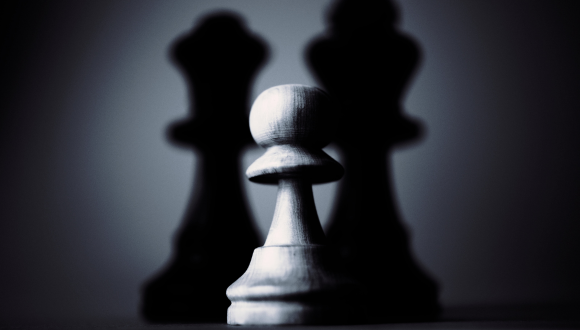The Psychology of Chess Thinking: Handling Pressure and Turning the Tide
Learn about the psychology of chess thinking and how to deal with pressure in critical playing situations.



Mastering Pressure in Chess: Psychological Techniques for Success
Chess thinking is not just about strategic acumen or tactical skill, it is about resilience and composure under pressure. Successful chess players don't just apply game theory and strategic pattern recognition - they win because they effectively cope with stress, maintain psychological resilience, and thereby change the course of the chess game in their favor.

Mental toughness and stress management during chess game
In chess, your ability to manage stress plays a very important role. High-pressure games increase stress and even experienced players make mistakes. To cope with this, chess players can use various techniques such as meditation. They help to stay calm and think clearly under pressure.
This simple technique can help you cope with stress during chess play.
Adaptability: The Chess Player's Secret Weapon
One of the features of a developed chess player's thinking is flexibility. A chess player must quickly reevaluate and reorganize his actions in response to his opponent's moves. This is a constant work during the whole chess game.
Grandmasters have incredible mental and psychological flexibility, quickly changing their tactical and strategic decisions, thus using the current dynamics of the game to win.

Turning the Tide: Psychological Moment in Chess
One move in chess can radically change the situation in a game, forcing you to change your approach and strategy if you want to win. Those players who know what a psychological impulse is, consciously change the course of the game when they sense that the opponent is vulnerable or overconfident.
They put pressure on him, forcing him to make mistakes and seize the initiative. To catch psychological impulses and use them, you need not only the ability to choose the right moment but also to feel, say, whether your opponent is bluffing or he is in a panic and does not know what move to make.
Overcoming Fear of Chess Moves Mistakes
Fear of making a mistake is more likely to harm you than benefit you, and causes you to be indecisive and unable to take advantage of situations. Experienced chess players realize that mistakes are part of the game and use them as an experience rather than something to be feared.
So the main thing is right here, don't be afraid to make mistakes, but learn from your mistakes, as simple as that sounds. And your chess game will become even more interesting.
Conclusion
The psychology of chess thinking is as important as knowledge of the first move or endgame. Players who handle pressure and adapt well control the tempo of the game. So play chess and improve with every move.




